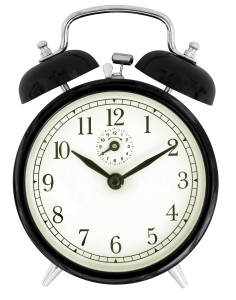Monday, February 1, 2016 by Ben Palmateer

(CC BY-SA 3.0)
If you walked through any high school hallway as the students enter the building in the morning, it would become immediately obvious that high schoolers are not getting enough sleep. In the hierarchy of students, no one is at the top when it comes to the everyday snooze. Teens experience the morning drag every single day, never questioning why they must wake up at such an arbitrary time, and seemingly never protesting the toll that lack of sleep can take on one’s health. But what really are the full effects of an early morning on today’s teens?
The National Sleep Foundation has determined that only 15% of teenagers receive the appropriate eight and a half hours of sleep, and from personal experience, I’m not at all surprised. On a good night, I’ll receive about 6 hours of sleep a night, and I know that many of my peers receive even less. While this epidemic is affecting the majority of students, a lack of sleep is most prominent among the top academic performers, which makes sense because the best students are most likely to take the most difficult course schedule, and are often involved in other extracurricular pursuits. The student who takes a full AP schedule, plays three varsity sports, and is the first chair violinist in the orchestra is going to spend his or her nights occupying themselves with tasks other than sleep, which is ironic because these are the students who really need to be getting the most sleep to fuel their active schedules. This forces the nation’s brightest minds to make a choice: either be the person who he or she wishes to be while sacrificing mental and physical health, or be a healthy teenager while not living up to his or her potential.
The underlying cause of this lack of sleep is the time that school begins, and the amount of time that students spend at school. There really is no logical, unavoidable reason as to why high school’s couldn’t start at a later time or end earlier. This issue that is extremely pertinent to student health has not been addressed legitimately by any governing body, despite the vast amount of easy solutions to the problem. In my personal opinion, the correct solution to the problem would be to have schools begin classes at a later hour, even just slightly later, while still ending at the same time, and making up for the lost time with extra days of the school year. This solution could not possibly cause any problems except that some students will be frustrated that they must attend school for a greater number of days. After school activities would in no way be affected, teachers could still teach their full curriculum, and the students who are the future of our nation can get more sleep, leading to a happier, healthier, and more successful academic environment. Unfortunately, I don’t see this issue being resolved or even addressed any time soon, and I suppose that until the conversation begins, young adults will have to slowly deteriorate as they push themselves beyond their physical and mental limits every day.
Ben Palmateer is a senior staff member of the Lightning Rod focusing on the Opinion department.

Excellent article
I agree with later start times and going to school a few extra days for the health of my children. My child has recently developed a medical condition that has been exacerbated by lack of good quality sleep. She is in all honors courses and plays sports and participates in clubs. Having her health suffer because of early start times seems absurd.